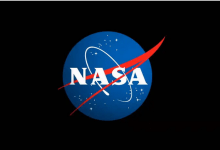
Surprise! We’ve been adding leap seconds for 50 years
Until today, I bet you never heard of leap seconds — seconds, not years. Ever since 1972, we’ve been occasionally adding a second to our global clock to account for variations in the speed of the earth’s rotation. As it slows down, we add a second. So far, we’ve added 27.
You might think this has no impact on you (or be thrilled that you’ve got an extra second free), but if you remember being unable to access Reddit in 2012 or dozens of Cloudflare-supported websites that went offline in 2017, then you’ve stared into the cold, hard face of a leap second.
Meta, a company not necessarily known for always having our best interests at heart, is, it turns out, no fan of leap seconds. Meta wants to do away with them, and made its case this week in an extensive blog post (opens in new tab) on the topic.
This isn’t personal, Meta says (though it might be a little self-serving): The company’s global network faces the same challenges as all others when it comes to this seemingly harmless extra tick-tock of the clock. Successful implementation of a leap second, which causes a one-second stutter of the world clock to add that extra beat, is a precise synchronization of a global dance troupe that hasn’t been taught all the steps.
f, as is often the case, all systems aren’t handling the change in the same way or communicating it in a timely, split-second fashion, systems like those described above – systems you rely on – crash.
To be clear, leap seconds are not a yearly or guaranteed occurrence. They’ve happened just over half the years we’ve had the system in place, but they can occur with unpredictable regularity, and the disruption can be incalculably bad.
Learning about leap seconds is disorienting in the way that learning about Y2K (opens in new tab) was in the late 1990s. Up until that moment, we’d been enjoying a digital spring, almost twenty years with home PCs, and decades more with business and mainframe computers making our everyday lives better and more productive. Then someone noticed that no one had programmed most systems for the changeover that would happen when the date turned from 1999 to 2000. We were told that the Internet and a multitude of other systems could just collapse. Businesses and banks would fall, and there’d be global panic.
Everyone freaked out a little … until developers and engineers like the ones working at Meta today recognized the risk and started working to adjust. By the time January 1, 2000, rolled around, the feared armageddon was a virtual no-show.
We prepared. And thus we survived.
The existence of the leap second probably isn’t as dire a situation – probably. It has, though, that “butterfly beating its wings in Houston and starting a tsunami in Taipei” potential. As Meta notes, “As an industry, we bump into problems whenever a leap second is introduced. And because it’s such a rare event, it devastates the community every time it happens.”
You didn’t know about the leap second until now, but it might make sense to acknowledge it and, now, support its demise.







![[1/3]An AI (Artificial Intelligence) sign is seen at the World Artificial Intelligence Conference (WAIC) in Shanghai, China July 6, 2023. REUTERS/Aly Song/File Photo Purchase Licensing Rights, opens new tab](https://www.ghanaiantimes.com.gh/wp-content/uploads/2024/03/Screenshot-2024-03-11-at-09-10-00-AI-talent-war-heats-up-in-Europe-e1710148354659-220x150.png)